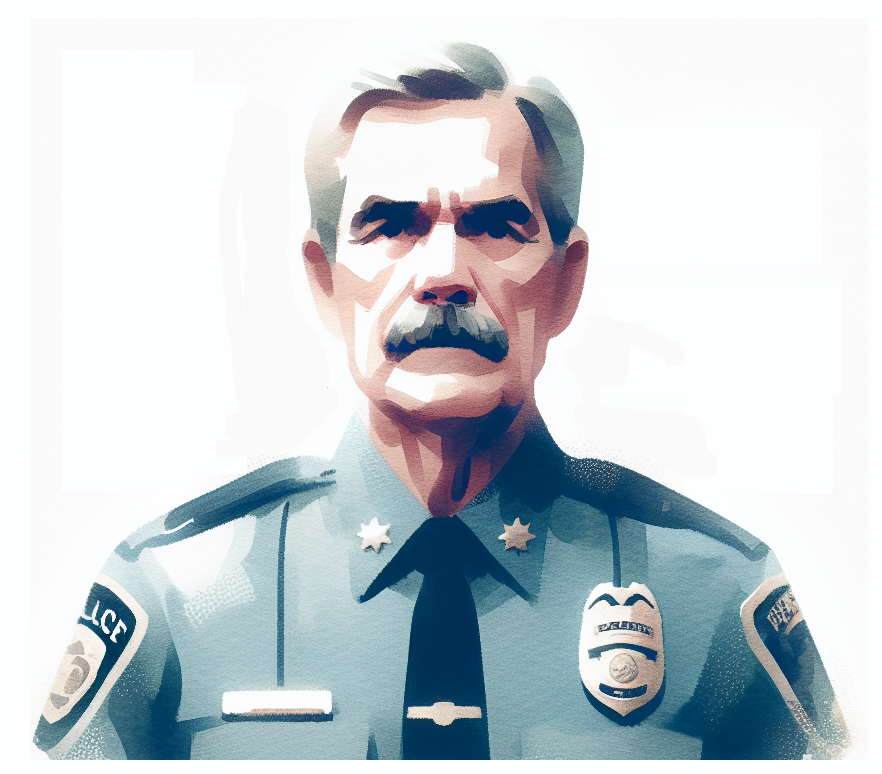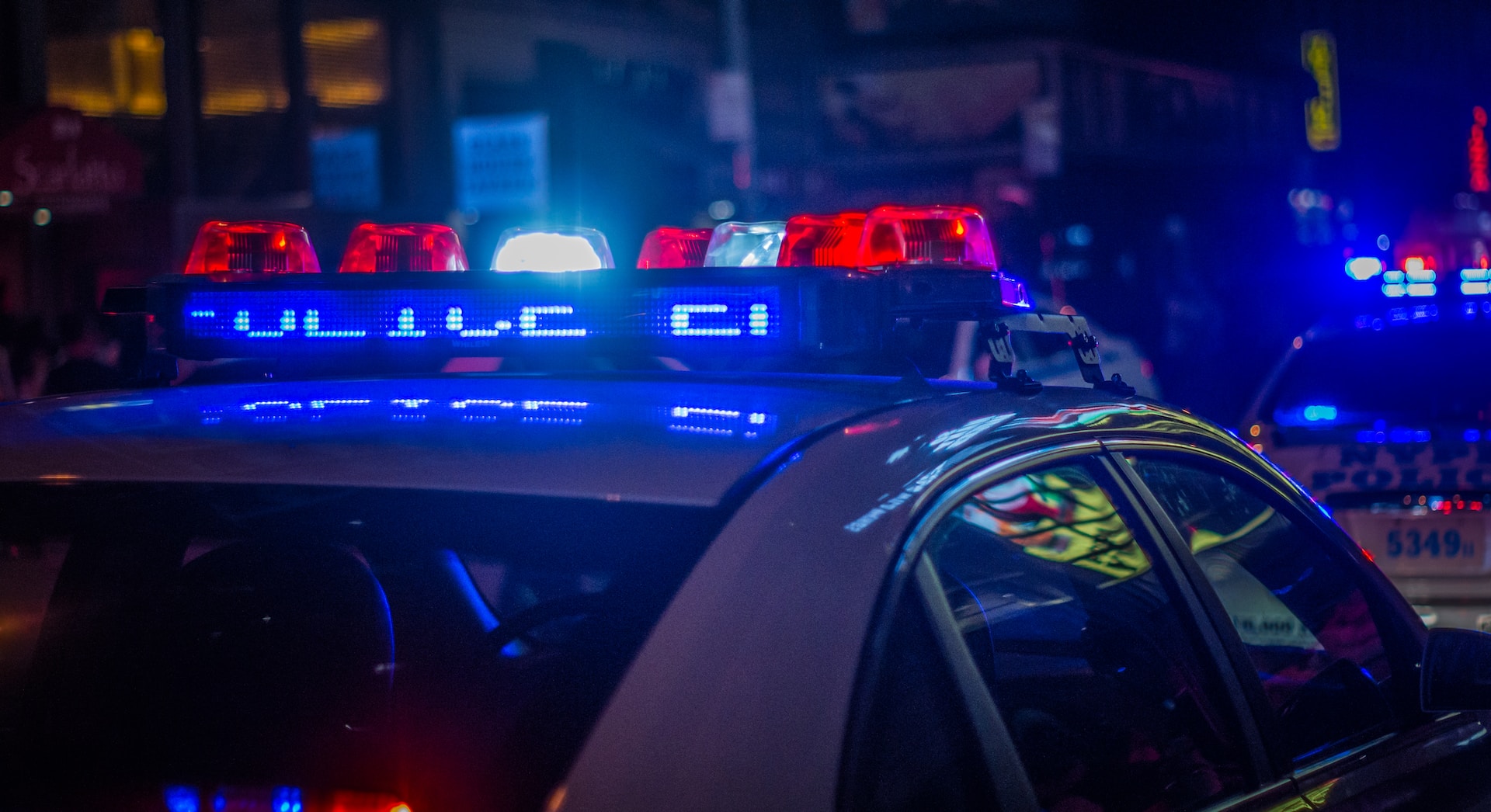It’s not uncommon for drivers to feel anxious or nervous when they see flashing police lights in their rearview mirror. I know that even before I was retired as a police officer, I would still get nervous if I was getting pulled over. I have also been on the other end, as a patrol officer I have done tens of thousands of traffic stops. While getting pulled over can be stressful, it’s important to know how to handle the situation appropriately to ensure your safety and legal rights are protected.
By the end of this post you’ll have a better understanding of your rights and responsibilities during a traffic stop, which can help you feel more confident and in control if you ever find yourself in this situation. Let’s get started!
Preparing for a Traffic Stop
Getting pulled over by the police can be a nerve-wracking experience. However, there are some things you can do to prepare for a traffic stop that can help reduce your anxiety and ensure the interaction with the officer goes smoothly. Here are some tips to consider:
- Knowing Your Rights: As a driver, you have certain legal rights that protect you during a traffic stop. For example, you have the right to remain silent and the right to refuse a search of your vehicle without a warrant. It’s a good idea to familiarize yourself with your rights so you can assert them if necessary.
- Understanding the Officer’s Perspective: Police officers have a difficult job and are trained to be cautious during traffic stops. They may approach your vehicle with their hand on their weapon, which can be intimidating. Understanding the officer’s perspective can help you remain calm and cooperative during the interaction.
- Making Sure Your Vehicle is in Good Condition: Before hitting the road, make sure your vehicle is in good working condition. Ensure that all your lights, brakes, and signals are working properly, and your registration and insurance documents are up to date.
- Finding a Safe Place to Pull Over: If you’re pulled over, it’s important to find a safe location to stop your vehicle. Try to pull over as far to the right as possible, and avoid stopping on a curve or hill where it may be difficult for other drivers to see you.
What to do During a Traffic Stop
Getting pulled over by the police can be stressful, but it’s important to remain calm and follow some basic guidelines to ensure your safety and legal rights are protected. Here are some tips on what to do during a traffic stop:
- Turning off the Engine and Staying in the Car: Once you’ve found a safe place to pull over, turn off your engine, and remain in your vehicle. This signals to the officer that you’re not a threat and are willing to cooperate.
- Keeping Your Hands Visible and Avoiding Sudden Movements: Keep your hands on the steering wheel where the officer can see them. Avoid reaching for your wallet, cellphone, or any other items without notifying the officer first.
- Cooperating with the Officer’s Instructions: The officer will likely ask to see your driver’s license, registration, and proof of insurance. Provide these documents politely and promptly.
- Knowing What Not to Say or Do: Avoid making any sudden movements, arguing with the officer, or admitting to any wrongdoing. Also, never offer a bribe to the officer, as this is illegal and can result in more serious charges.
Interacting with the Officer
During a traffic stop, it’s essential to interact with the police officer respectfully and cooperatively. Here are some tips to help ensure a safe and productive interaction:
- Responding to Questions Respectfully: Answer the officer’s questions truthfully and politely. It’s okay to ask for clarification if you don’t understand a question, but avoid arguing or becoming defensive.
- Providing Identification and Vehicle Documentation: When asked, provide your driver’s license, registration, and proof of insurance. Keep these documents easily accessible so you can provide them promptly.
- Asking for Clarification if Needed: If the officer gives you instructions that you don’t understand, it’s okay to ask for clarification. However, avoid arguing or becoming confrontational, as this can escalate the situation.
- Understanding Your Options if Issued a Citation or Arrested: If the officer issues you a citation or decides to arrest you, remain calm and cooperative. You have the right to contest the citation or seek legal advice if you’re unsure of your options.
Final thoughts
If you’re unsure of your legal rights or have any concerns about the traffic stop, it’s always a good idea to seek legal advice. Remember, the goal is to remain calm, respectful, and cooperative during the interaction with the officer.
In summary, by following these guidelines, you can help ensure your safety and protect your legal rights during a traffic stop. Stay calm, be respectful, and cooperate with the officer’s instructions, and everything should go smoothly.

The Retired Cop dedicated 35 years to serving as a police officer, where he gained extensive experience by working in various specialized units such as patrol, SWAT, major case investigations, and traffic enforcement. His diverse background in law enforcement has equipped him with a deep understanding of criminal justice and operational procedures. This expertise allows him to offer valuable insights into legal matters, drawing from his extensive knowledge of the justice system.





